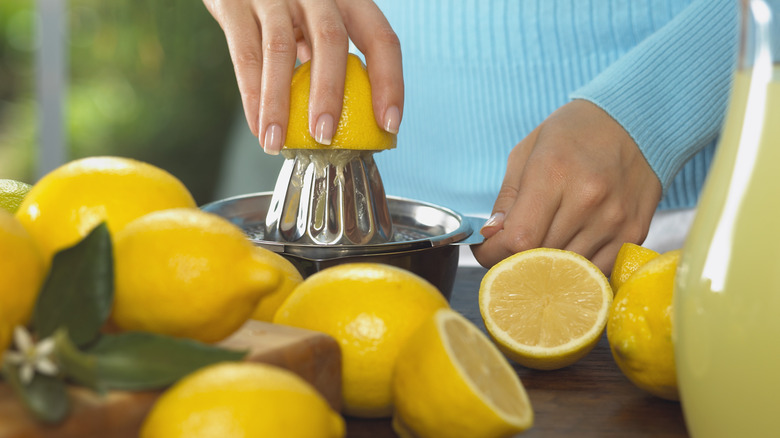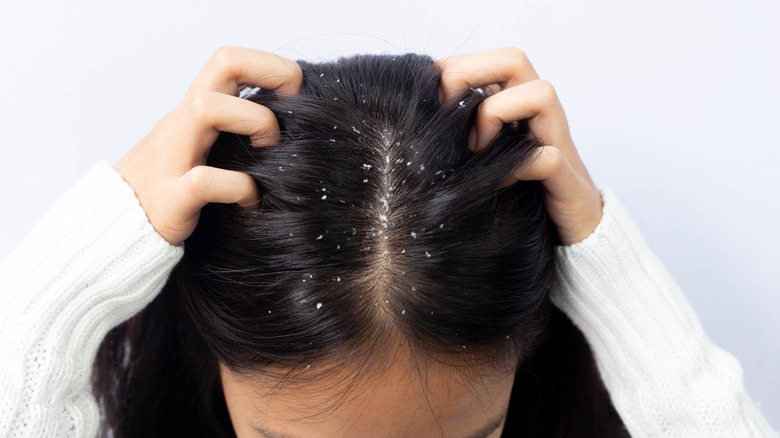Can Lemon Help Reduce Dandruff? Here's What We Know
When dandruff hits, you naturally want it gone as soon as possible. The white flakes that often fall out of your scalp and onto your clothes and surfaces can be embarrassing but it shouldn't be. Even though dandruff can sometimes be caused by less than stellar hair washing practices, that is certainly not always the case. Dandruff can appear from having dry skin on your scalp or, on the flip side, oily skin.
According to the Mayo Clinic, contact dermatitis from hair care or other beauty products can be an underlying cause and so can medical conditions such as psoriasis and eczema. Sometimes fungal infections can cause itch and dry flakes often marked by dandruff. The fungus Malassezia is responsible for many cases of dandruff.
Though it can be a recurring and annoying problem, there are ways to manage and control dandruff. However, you may have to try out different treatments until you find one that works best for you. Some believe applying lemons or lemon juice to your scalp may be the answer.
What lemons can do for dandruff
Sometimes dandruff can appear simply because the scalp's ph balance is off. That's why you'll see pH-balancing cleansers in the shampoo aisle. They are designed to cleanse your hair and scalp, while not removing too much oil to help keep a healthy pH balance (via Naturally Curly). They also help keep hair free from frizz, tangles, and breakage.
Lemon juice applied to the hair can benefit it in many ways. The Vitamin C found in lemons helps follicles become stronger and may also encourage collagen to grow. Lemons also contain Vitamin B and not getting enough Vitamin B can result in seborrheic dermatitis, which often brings on dandruff.
As an acidic food, lemons, along with other citrus fruits, can help keep pH levels balanced. That is partly why citrus oils are key components in shampoos and other hair care products. They can help reduce the risk of inflammation and possibly dandruff. However, lemons cannot help manage or alleviate all dandruff since its causes vary.
The acid in lemon can help deter fungus
If the dandruff is caused by the fungus Malassezia, the more oily your scalp gets, the more the fungus becomes a problem because it lives by consuming the oils in the scalp, as per Head & Shoulders. To put a stop to dandruff caused by this fungus, it's vital to reduce the oil in the hair. Lemon is naturally acidic, so when added to hair, it helps remove oil.
Additionally, lemons and citrus fruits, in general, have anti-microbial, antibacterial, and antifungal effects. They also contain antioxidants. However, you don't want to pour lemon juice directly on your scalp without knowing exactly what the dandruff is stemming from. If eczema is the underlying cause of the flakes and dry skin, adding lemons or lemon juice will cause your skin to burn and become even more irritated.
Your best bet is to check with a dermatologist if you're having ongoing dandruff issues, especially if it's causing itch and discomfort. Getting to the bottom of why it's occurring in the first place can help you find proper treatment sooner.


